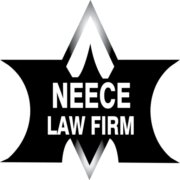Best Drug Crime Lawyers in North Carolina
Share your needs with us, get contacted by law firms.
Free. Takes 2 min.
Or refine your search by selecting a city:
List of the best lawyers in North Carolina, United States
About Drug Crime Law in North Carolina, United States
Drug crime law in North Carolina addresses the illegal possession, manufacture, distribution, and trafficking of controlled substances. The state has comprehensive statutes regulating various types of drugs, including but not limited to marijuana, cocaine, heroin, methamphetamines, prescription medications, and synthetic substances. North Carolina classifies offenses by factors such as the type and quantity of drug involved, past criminal history, and circumstances like proximity to schools or minors. Penalties for drug crimes in North Carolina can include heavy fines, imprisonment, probation, and a lasting criminal record, making legal guidance highly important if you are facing allegations.
Why You May Need a Lawyer
If you are being investigated for or charged with a drug crime in North Carolina, you may be facing serious consequences that can affect your freedom, employment, and future opportunities. Common situations where legal help is essential include being arrested for drug possession, being accused of possession with intent to distribute, facing allegations of manufacturing or trafficking, or having prescription medication without proper documentation. Drug laws can be complex, and the defense strategies available depend on the facts of your case. An experienced lawyer can help you understand your rights, challenge evidence, negotiate plea deals, and aim for reduced charges or dismissal. Early legal intervention can make a significant difference in your case outcome.
Local Laws Overview
North Carolina’s drug crime laws are primarily outlined in Chapter 90 of the North Carolina General Statutes, also known as the North Carolina Controlled Substances Act. Controlled substances are organized into schedules according to their potential for abuse and accepted medical use, from Schedule I (most serious, like heroin and LSD) to Schedule VI (least serious, like marijuana). Penalties often depend on the schedule, the amount of substance, and intent. For instance, simple possession is generally treated less harshly than trafficking or manufacturing. Certain aggravating factors, such as proximity to a school or involvement of minors, can lead to harsher penalties. North Carolina also has mandatory minimum sentences for some trafficking offenses and offers alternatives like Drug Treatment Court for eligible offenders. Understanding the intricacies of these laws is critical, which is why professional legal advice is vital.
Frequently Asked Questions
What happens if I am caught with marijuana in North Carolina?
While marijuana is illegal for recreational use in North Carolina, penalties vary by amount. Possession of less than 0.5 ounces is a misdemeanor with a possible fine and no jail time, but higher amounts or intent to sell bring more severe penalties.
Can I be charged for prescription drugs without a prescription?
Yes, it is illegal to possess prescription medication that is not prescribed to you. This includes common drugs like opioids and certain stimulants. Charges range from misdemeanors to felonies depending on the substance and quantity.
What is the difference between possession and possession with intent to distribute?
Possession involves having a controlled substance for personal use. Possession with intent to distribute implies you intended to sell or give the substance to others, which is a more serious crime and often inferred from the amount of drug or evidence like scales and baggies.
Are all drug crimes felonies in North Carolina?
No. While many drug crimes are felonies, some minor offenses, such as simple possession of a small amount of marijuana, are classified as misdemeanors. The charge level depends on the drug schedule, quantity, and other circumstances.
What should I do if I am arrested for a drug crime?
Remain calm and exercise your right to remain silent. Do not consent to searches or answer questions without a lawyer present. Request legal counsel as soon as possible to protect your rights.
Does North Carolina have drug diversion or treatment programs?
Yes, certain low-level and non-violent offenders may be eligible for Drug Treatment Court or diversion programs. Successful completion can lead to reduced or dismissed charges, but eligibility is based on specific factors.
Can my driver’s license be suspended for a drug conviction?
Yes, some drug convictions, especially those involving vehicles or juveniles, can result in driver’s license suspension in North Carolina, even if the offense was not driving-related.
How does a past criminal record affect my drug charges?
A previous criminal history can result in harsher charges and penalties, including classification as a habitual felon, which increases prison time and fines.
Is medical marijuana legal in North Carolina?
As of early 2024, North Carolina has limited medical marijuana laws, mainly allowing low-THC cannabis products for specific medical conditions. Otherwise, medical marijuana remains largely illegal.
Can my record be expunged after a drug conviction?
In certain circumstances, North Carolina law allows for expungement of some drug-related offenses, especially for first-time and non-violent offenders. The process is complex, and consulting a lawyer can help determine eligibility.
Additional Resources
If you are seeking information or support regarding drug crime charges in North Carolina, you may find help from the following organizations and agencies:
- North Carolina Judicial Branch - for information on court procedures and forms - North Carolina Department of Public Safety - for information on criminal records and corrections - Local Public Defenders and Legal Aid offices - for low-cost or free legal representation - North Carolina Bar Association - for finding qualified criminal defense attorneys - North Carolina Harm Reduction Coalition - for support and advocacy related to drug use and legal challenges - Substance Abuse and Mental Health Services Administration (SAMHSA) - for treatment and counseling resources
Next Steps
If you or someone you know is facing a drug crime charge in North Carolina, acting promptly is crucial. Start by gathering all documents related to your case, including police reports and court papers. Avoid discussing your situation with anyone but your attorney. Next, contact a qualified criminal defense lawyer who is experienced in North Carolina drug law. An attorney can evaluate your case, explain your rights, and develop an effective defense strategy. If you have limited income, inquire about public defender options or legal aid organizations. Remember, early legal representation can significantly affect your case outcome, so do not delay in seeking help.
Lawzana helps you find the best lawyers and law firms in North Carolina through a curated and pre-screened list of qualified legal professionals. Our platform offers rankings and detailed profiles of attorneys and law firms, allowing you to compare based on practice areas, including Drug Crime, experience, and client feedback.
Each profile includes a description of the firm's areas of practice, client reviews, team members and partners, year of establishment, spoken languages, office locations, contact information, social media presence, and any published articles or resources. Most firms on our platform speak English and are experienced in both local and international legal matters.
Get a quote from top-rated law firms in North Carolina, United States — quickly, securely, and without unnecessary hassle.
Disclaimer:
The information provided on this page is for general informational purposes only and does not constitute legal advice. While we strive to ensure the accuracy and relevance of the content, legal information may change over time, and interpretations of the law can vary. You should always consult with a qualified legal professional for advice specific to your situation.
We disclaim all liability for actions taken or not taken based on the content of this page. If you believe any information is incorrect or outdated, please contact us, and we will review and update it where appropriate.
Browse drug crime law firms by city in North Carolina
Refine your search by selecting a city.















